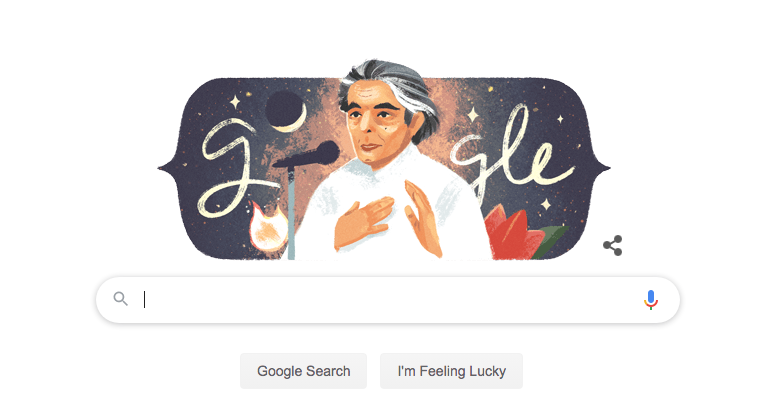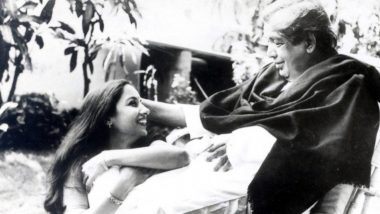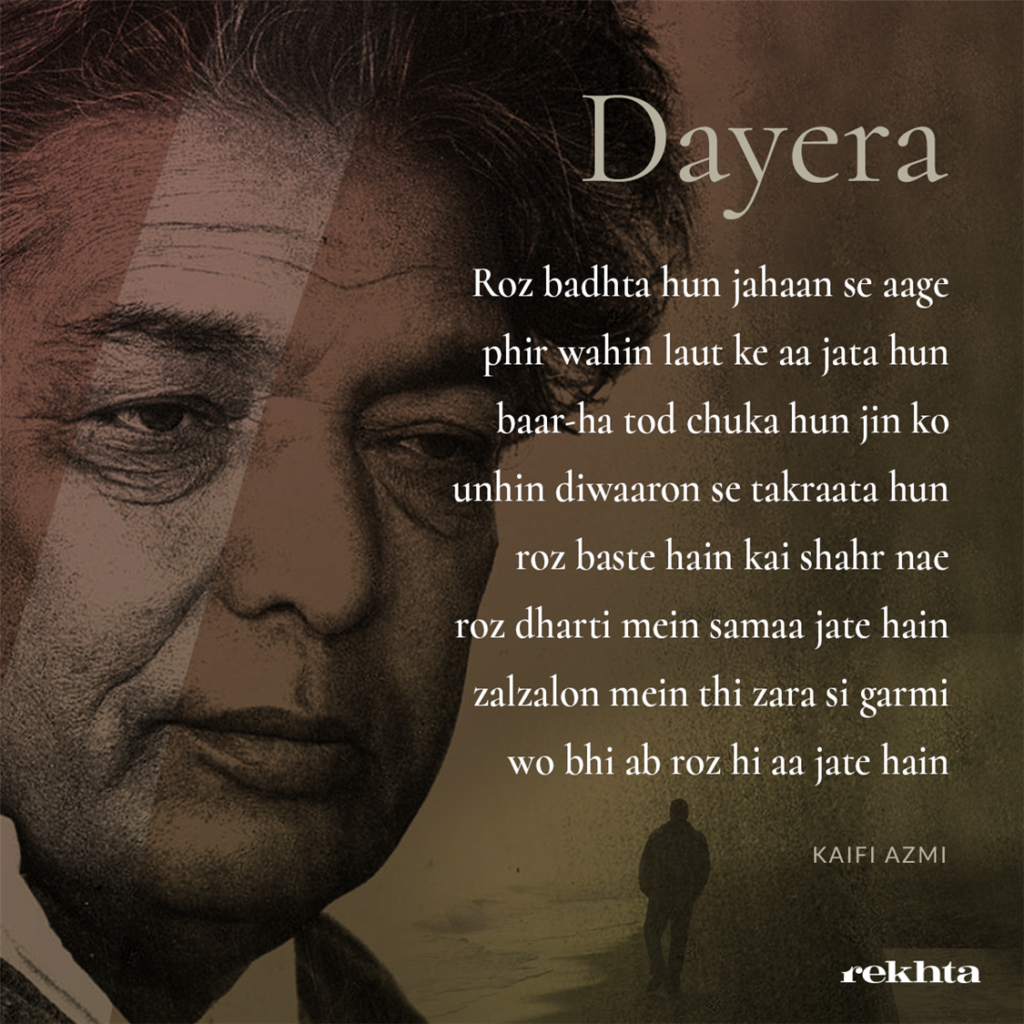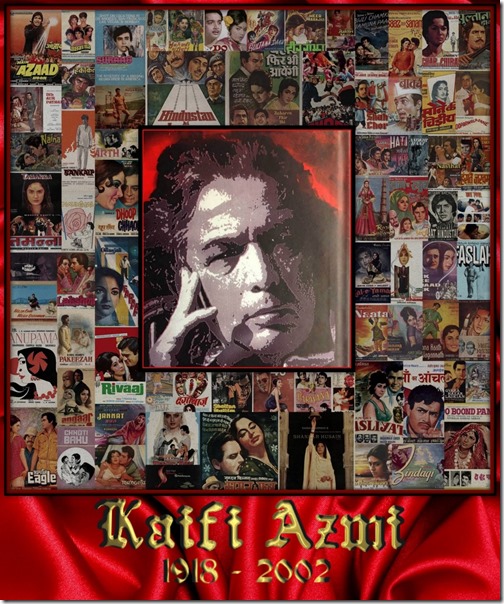On 101 birth anniversary, Google pays tribute to Kaifi Azmi: Learn More

On the occasion of 101 birth anniversary of poet, songwriter, and social advocate google shared a doodle paying tribute to his great work. Born as Syed Athar Hussain Rizvi on January 14, 1919, in Azamgarh, Uttar Pradesh. Azmi composed his first poem when he was just 11-year old.
He is remembered as the one who brought Urdu literature to Indian motion pictures. Together with Pirzada Qasim, Juan Elia and others, he participated in the most memorable mushairas of the twentieth century.
Interesting facts about Kaifi Azmi:
At age eleven, Azmi wrote his first ghazal Itna To Zindagi Mein Kisi Ki Khalal Pade and somehow managed to get himself invited to a mushaira and over there, he recited a ghazal, rather a couplet of the ghazal which was very much appreciated by the president of the mushaira, Mani Jaisi, but most of the people, including his father, though he recited his elder brother’s ghazal. When his elder brother denied it, his father and his clerk decided to test his poetic talent. They gave him one of the lines of a couplet and asked him to write a ghazal in the same meter and rhyme. Azmi accepted the challenge and completed a ghazal. This particular ghazal was to become a rage in undivided India and it was immortalized as it was sung by legendary ghazal singer, Begum Akhtar.

In Bombay, he joined Ali Sardar Jafri in writing for the party’s paper, Qaumi Jung. In 1947, he visited Hyderabad to participate in a mushaira. There he met, fell in love with and married a woman named Shaukat Azmi. She later became a renowned actress in theatre and films. They had two children together, Shabana Azmi (b. 1950), a renowned actress of Indian cinema and Baba Azmi, a noted cameraman.

His early work as a writer was mainly for Nanubhai Vakil’s films like Yahudi Ki Beti (1956), Parvin (1957), Miss Punjab Mail (1958) and Id Ka Chand (1958). His greatest feat as a writer was Chetan Anand’s Heer Raanjha (1970) wherein the entire dialogue of the film was in verse. It was a tremendous achievement and one of the greatest feats of Hindi film writing. Azmi also won great critical accolades for the script, dialogues, and lyrics of M. S. Sathyu’s Garam Hawa (1973), based on a story by Ishmat Chughtai.

He was the recipient of Padma Shri, India’s fourth-highest civilian award. Besides he was awarded the Uttar Pradesh Urdu Academy Award and the Sahitya Akademi Award for Urdu for his collection Awaara Sajde, Special Award of Maharashtra Urdu Academy, Soviet Land Nehru Award, Lotus Award from the Afro-Asian Writers’ Association, and President’s Award for national integration. In 1998, Government of Maharashtra conferred the Jyaneshwara Award on him. He was also honored with the prestigious Sahitya Akademi Fellowship for lifetime achievement.
The government has also inaugurated a train named “Kaifiyat Express” which runs from his hometown Azamgarh to Old Delhi.
